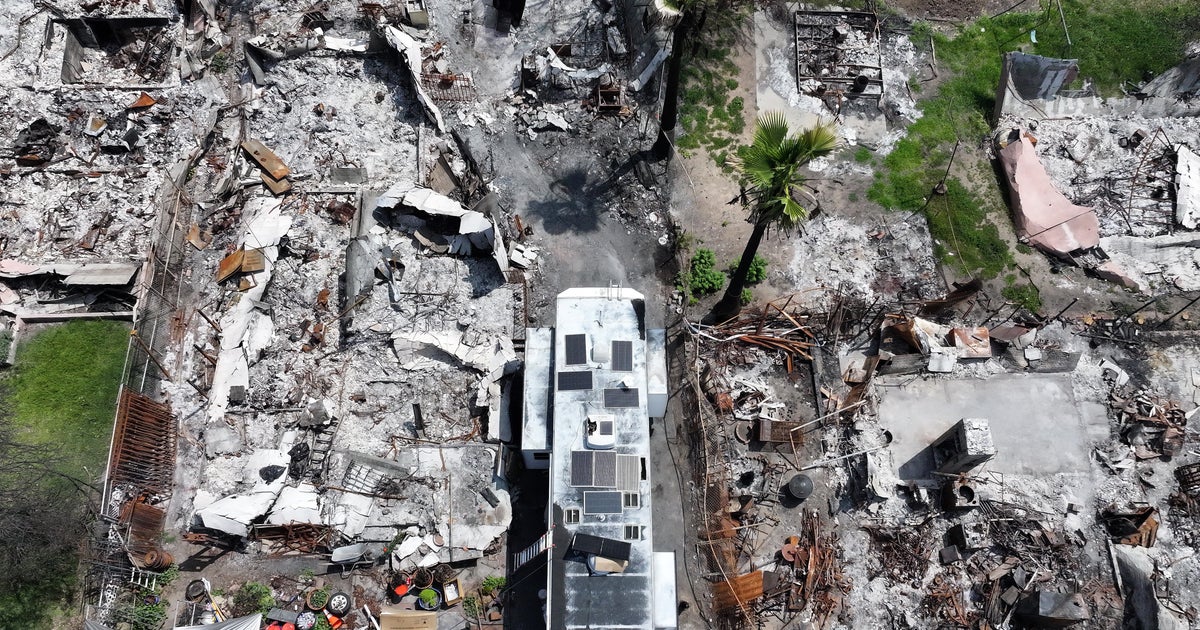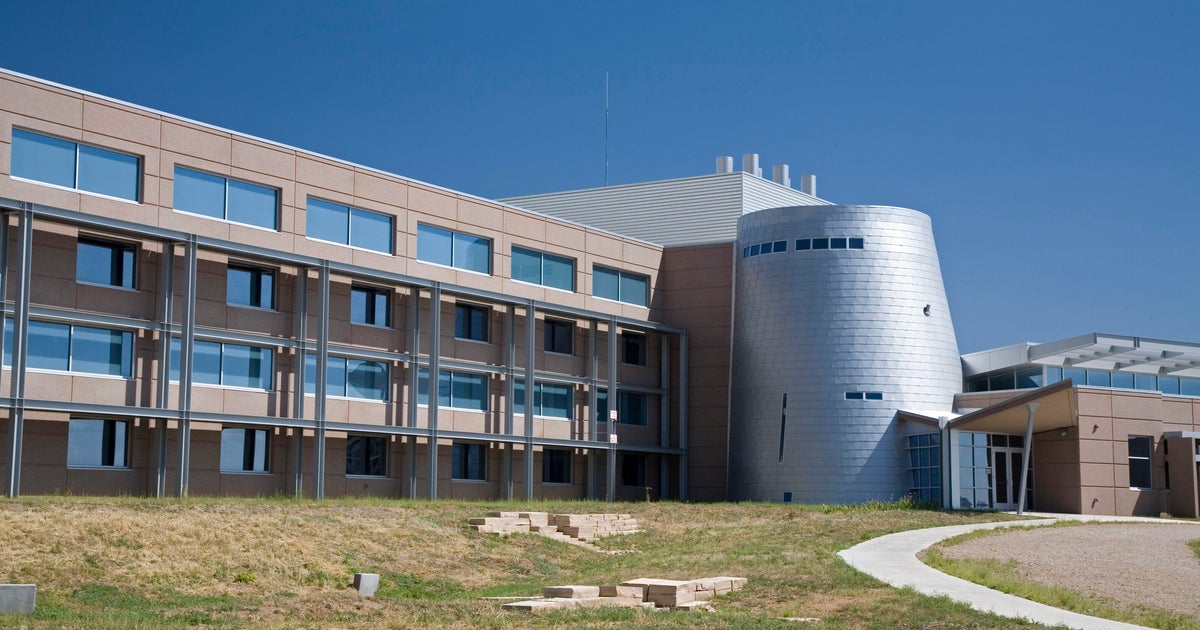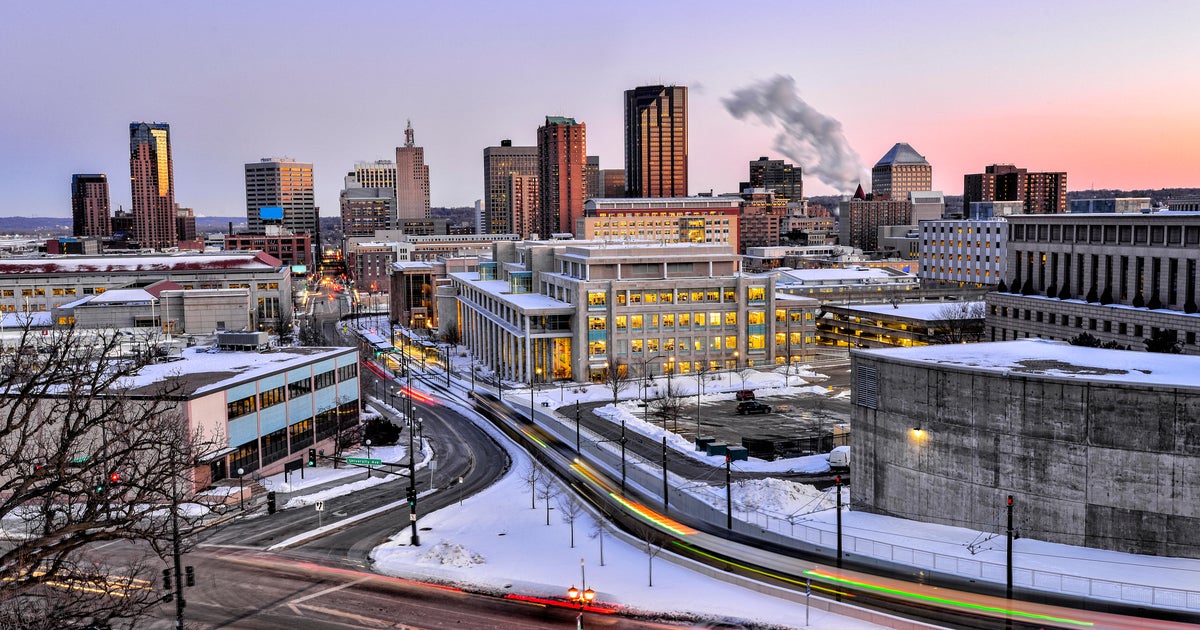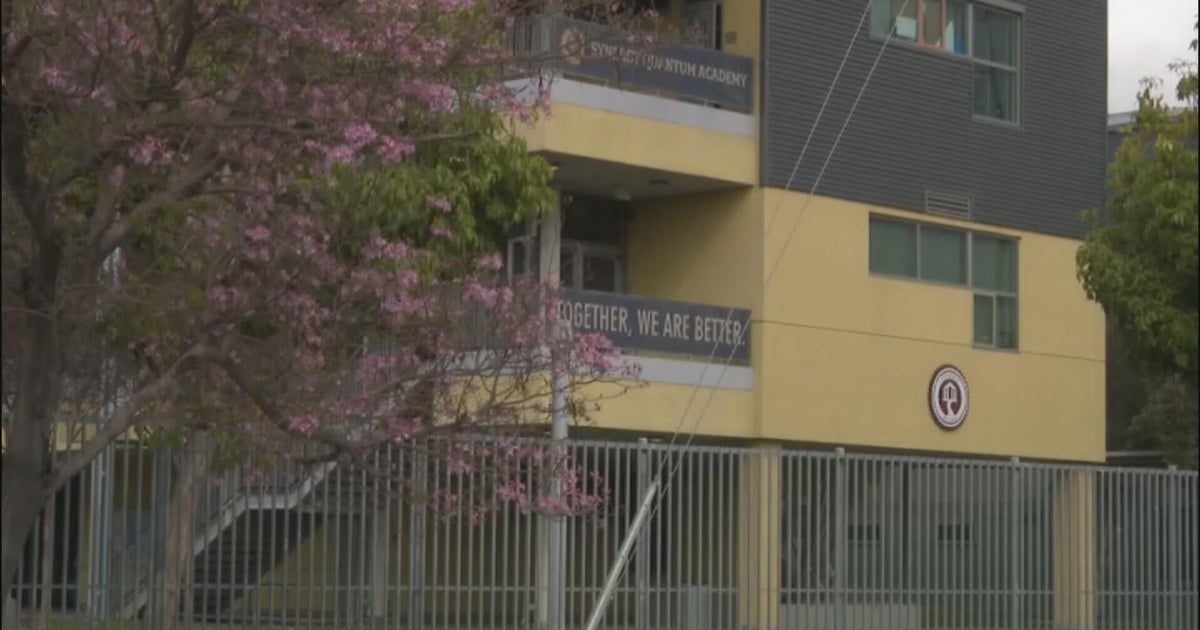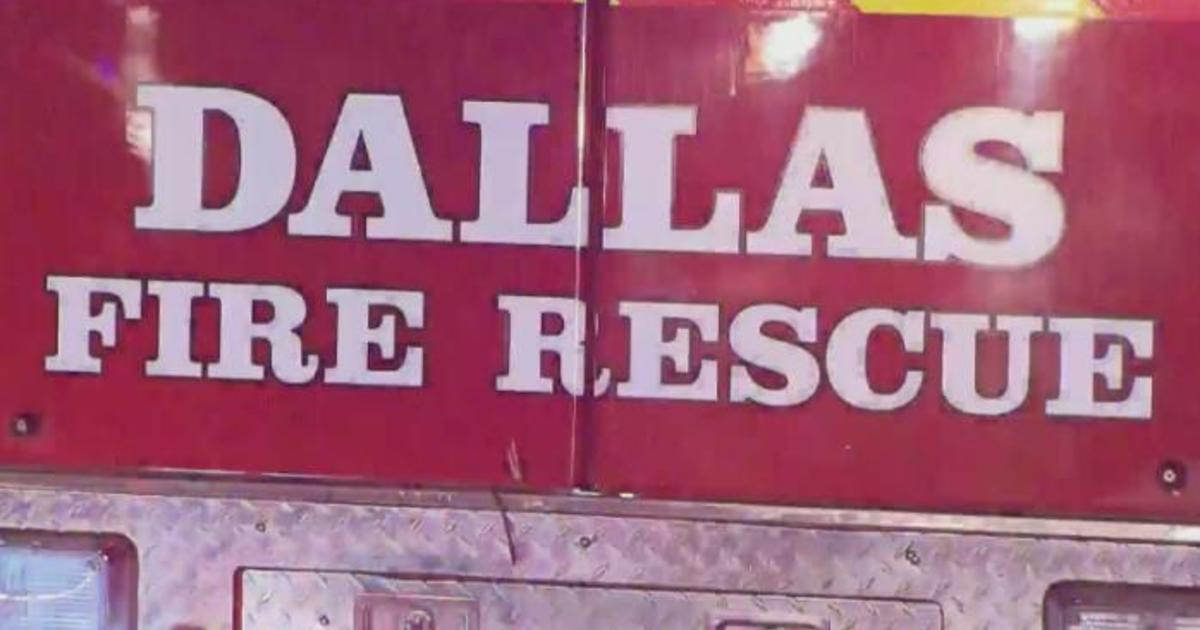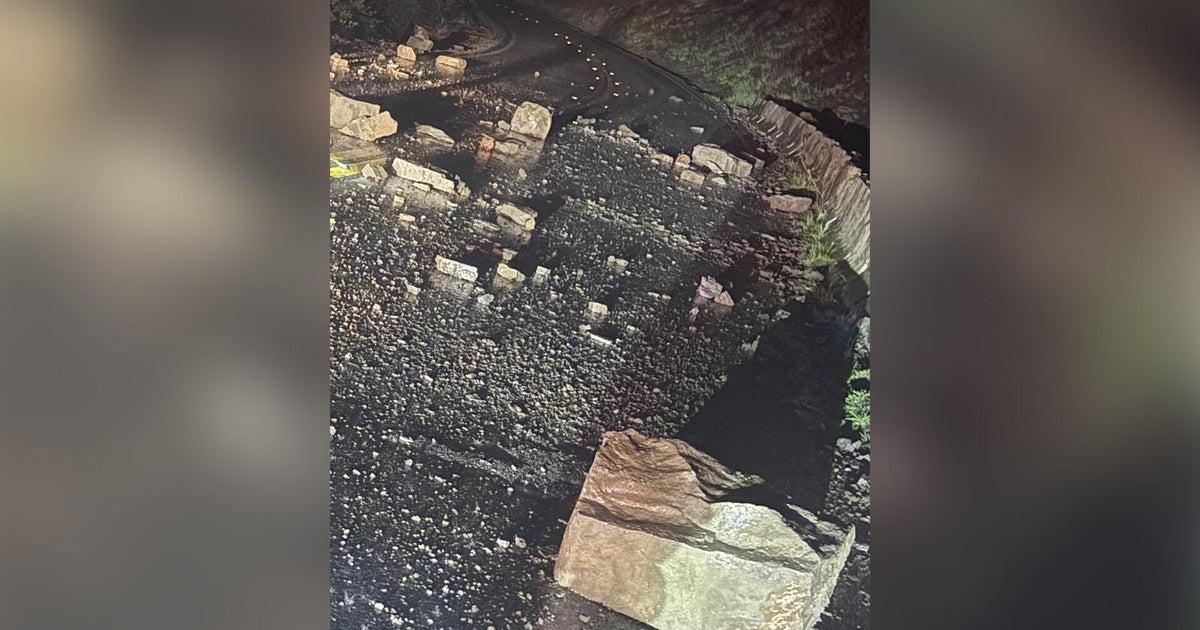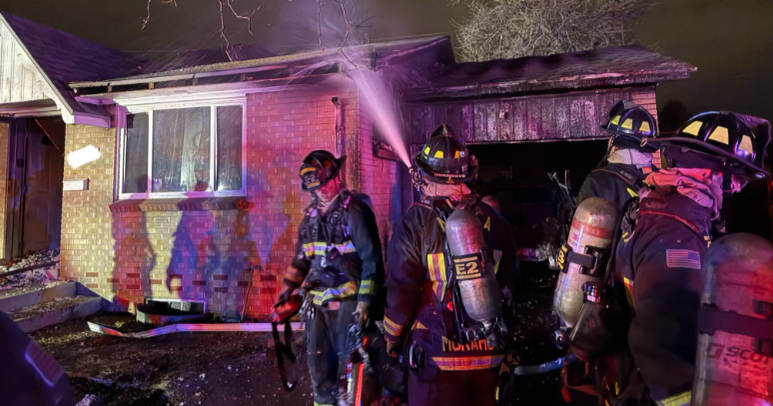Sanders Touts $16 Trillion Climate Plan In Fire-Ravaged Paradise
PARADISE, Calif. (AP) — Democratic presidential candidate Bernie Sanders released a $16.3 trillion climate plan on Thursday before touring a Northern California town ravaged by wildfire, declaring the setting a "wake-up call for our entire nation" to the dangers of a warming planet.
"Climate change is a major, major crisis for our country, and the entire world, and one of the manifestations of that crisis is what happened here," the Vermont senator said as he walked through a burned-out mobile home park in Paradise alongside people who lost their homes in last November's deadly blaze.
Sanders' climate plan calls for the United States to move to renewable energy across the economy by 2050 and declare climate change a national emergency.
READ ALSO: Bernie Sanders Rally In Sacramento: Everything You Need To Know
While Sanders had already endorsed the Green New Deal, the sweeping Democratic proposal to combat climate change, and had teamed up with Rep. Alexandria Ocasio-Cortez of New York on climate legislation, his new plan provides the most detail yet on how he envisions the climate change moonshot taking shape if he is elected president.
Sanders describes his plan as a "ten-year, nationwide mobilization centered on equity and humanity" that would create 20 million new jobs.
Among Sanders' ideas is sourcing 100% of the country's electricity from renewable and zero-emissions power. He is calling for committing $2.18 trillion in grants for low- and middle-income families to weatherize and retrofit their homes and businesses, with the goal of reducing residential energy consumption. He would charge the Energy Department with making sure that both new and existing commercial structures, as well as high-income home owners, meet his administration's energy retrofitting goals.
Sanders wants to overhaul the nation's transportation system by investing in electric vehicles, high-speed rail and expanded public transit. He calls for spending $526 billion to modernize the electrical grid across the United States.
In his plan, Sanders notes that communities of color are disproportionately affected by the climate emergency. He says the Green New Deal is an "opportunity to uproot historical injustices and inequities to advance social, racial and economic justice."
As scientists warn of the imminent consequences of global warming, the Green New Deal has been a rallying point for liberals in the party's base as well as to Democratic presidential contenders in the crowded field. But Republicans have argued that the plan is too radical and would drive the economy off a cliff and lead to a huge tax increase.
His campaign proposes covering the costs over 15 years by a patchwork of measures that includes eliminating existing fossil fuel subsidies and taxes on that industry; income tax revenue on the 20 million jobs created by his plan; and an estimated $1.3 trillion saved through a reduced need for safety net programs because of the creation of those jobs.
"It is expensive," Sanders said at a climate-focused town hall near Paradise. "But the cost of doing nothing is far more expensive."
In California, scientists and policymakers have named climate change as a major contributor to the state's worsening wildfires, which have killed more than 100 people and destroyed tens of thousands of homes in recent years. Investigators determined faulty utility equipment owned by Pacific Gas & Electric sparked the fire that ravaged Paradise. Sanders said his plan would provide billions to help states and local governments better respond to disaster and strengthen firefighting resources.
Republican U.S. Rep. Doug LaMalfa, who represents the area Sanders visited, said it's wrong to blame California's fires on climate change. He said Sanders' plan would make it harder for the state to fight blazes because it would call for planting billions more trees, which would create more tinder in the forests.
An audience member at the town hall asked Sanders how he would practice what he preaches when it comes to fossil fuel consumption. Sanders pointed to solar panels he's installed on his Vermont home but admitted that refusing to fly on planes powered by fossil fuels wasn't realistic for his presidential campaign.
"I'm not going to walk to California," he said. "We do the best we can ... but I'm not going to sit here and tell you that we're not going to use fossil fuels."
Sanders is just the latest Democratic presidential contender to release details of his climate plans.
Former Vice President Joe Biden released a $5 trillion-plus climate proposal that he says would lead the U.S. to net zero emissions of carbon pollution by 2050, and he is calling for $1.7 trillion in federal spending over 10 years. Massachusetts Sen. Elizabeth Warren has proposed investing $2 trillion in federal funding in clean energy programs, including her Green Apollo Program for clean energy research and development and a Green Marshall Plan devoted to encouraging countries to buy and use American-made clean energy technologies.
Before abandoning his presidential bid Wednesday, Washington Gov. Jay Inslee, who staked his campaign on the issue of climate change, released a $9 trillion plan to cut emissions. Former Texas congressman Beto O'Rourke called for spending $5 trillion over 10 years to combat climate change.
___
Summers reported from Washington.
